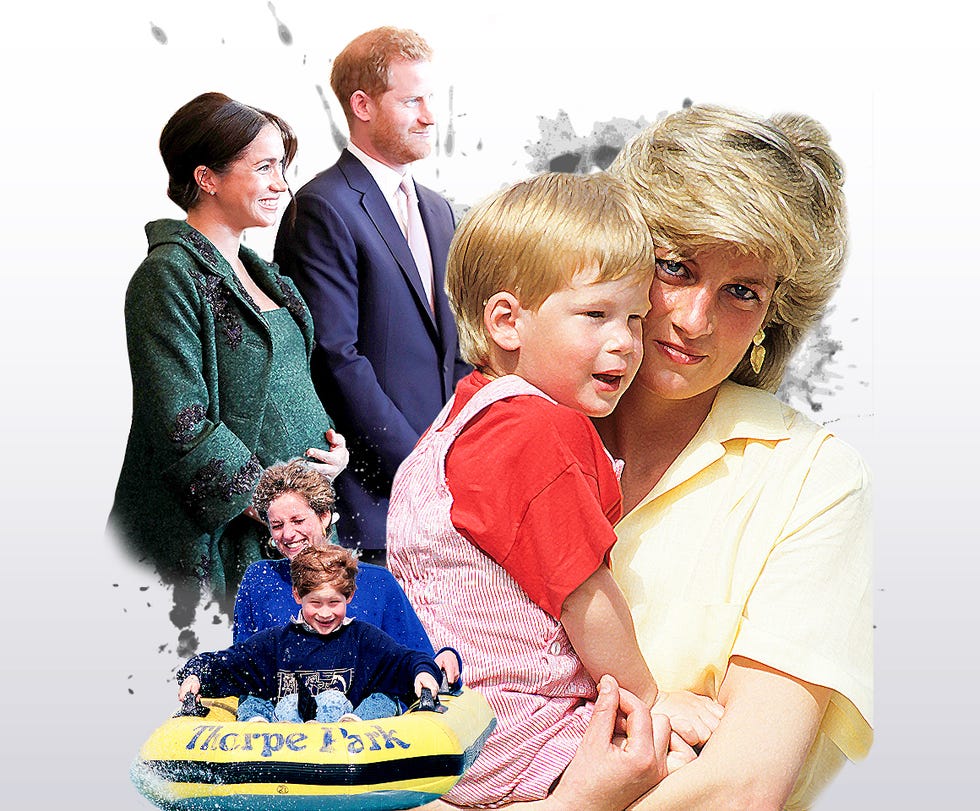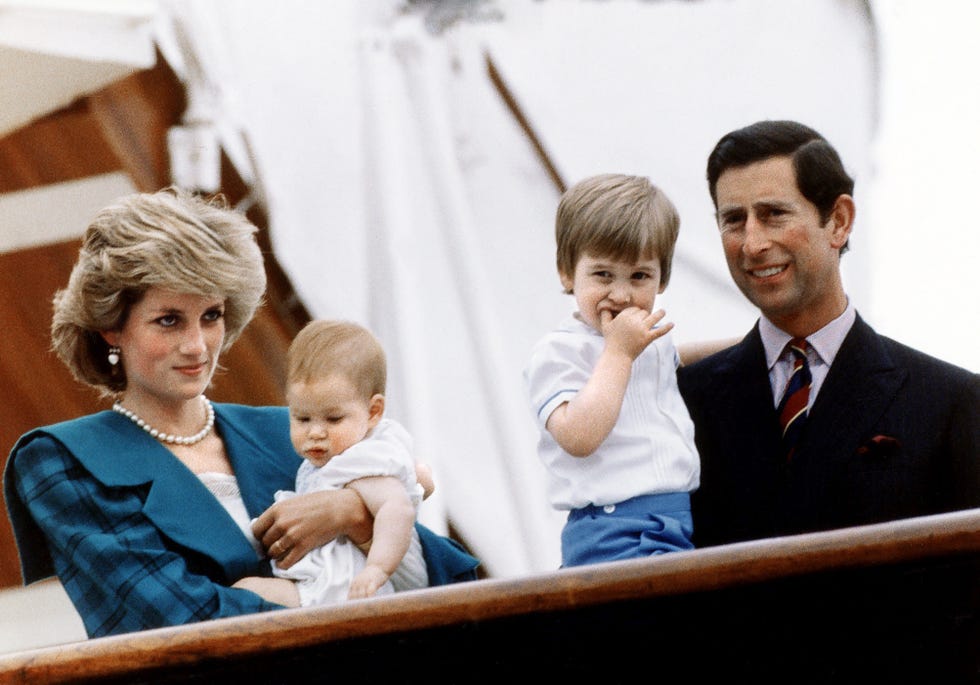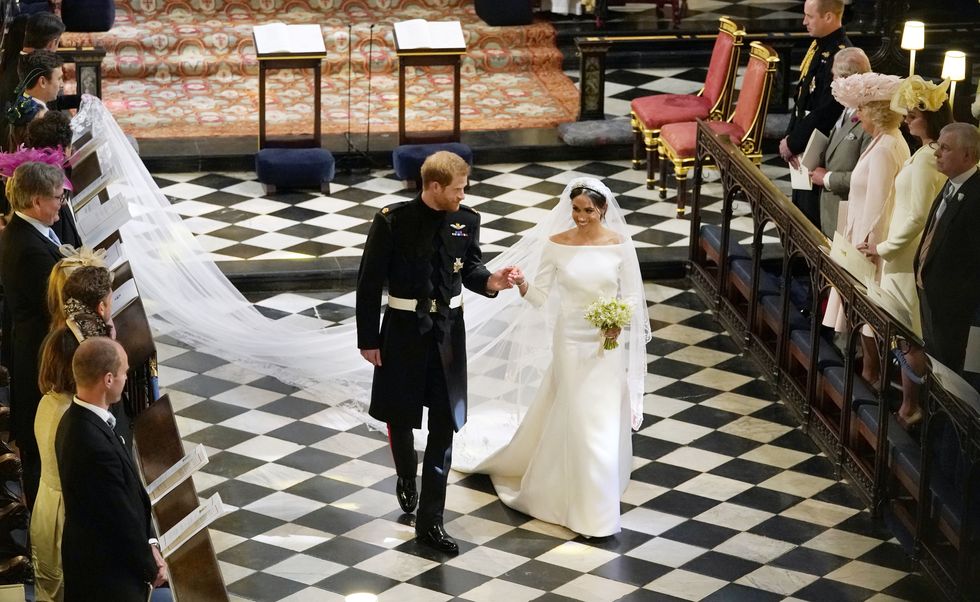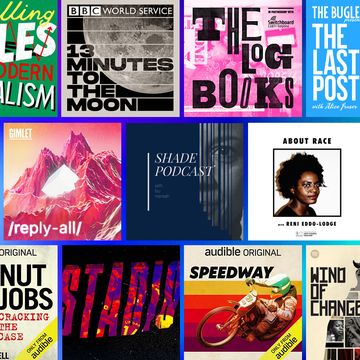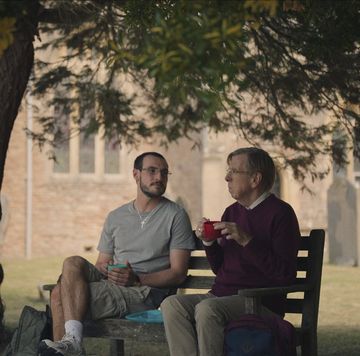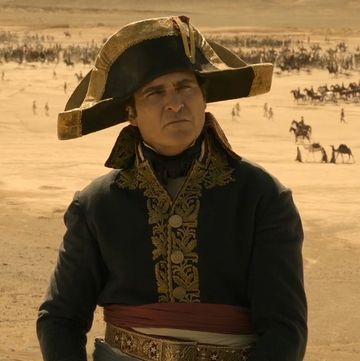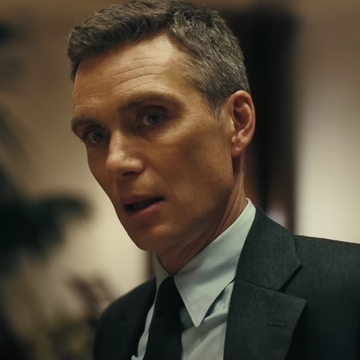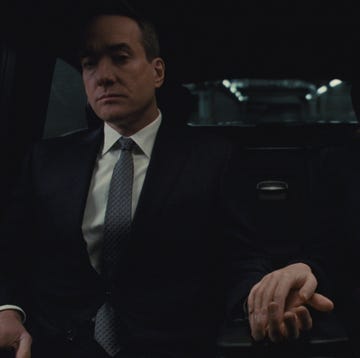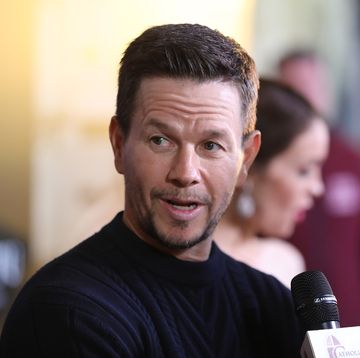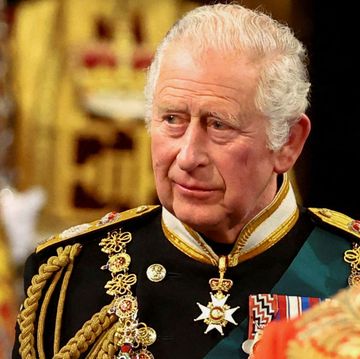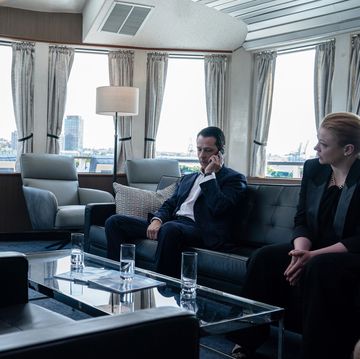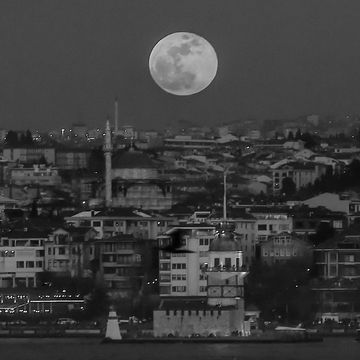The few times Prince Harry has spoken publicly, he has alluded chillingly to his fear of “history repeating itself.” His mother, Princess Diana, died while speeding away from the lens of paparazzi cameras, which continued to take her picture while she lay dying in the back of a car. The frenzied press coverage of Harry and Meghan Markle clearly echoed the mania around his mother, but in their CBS interview with Oprah on Sunday night, the similarities extend to the way Meghan was treated by The Firm—a term that may have been new to many American viewers, by which she means the apparatus that supports the royal family as a cultural and commercial institution more than as a family in the traditional sense.
Meghan and Oprah started their Sunday night interview talking about how naive she was when she began dating Prince Harry. She claimed she’d never Googled him, that she didn’t know how to curtsy when she met her new boyfriend’s grandmother—the Queen of England—and that she grew up in a family that didn’t really pay all that much attention to the royals. She said her mom recently asked her, “Did Princess Diana ever do an interview?” It was a savvy aside which drew a distinction between her family background and that of the royals, while also drawing a comparison between her treatment and Diana’s that would linger for the next two hours.
Anyone even remotely invested in the royals knows that Diana didn’t just give an interview, but gave one of the most honest and memorable ones ever to come from a royal. In 1995, after her separation from Prince Charles, Harry’s father, she spoke with BBC interviewer Martin Bashir about her mental health, her eating disorder, and her husband’s affair with his now-wife Camilla Parker Bowles. (“Well, there were three of us in this marriage, so it was a bit crowded” was how she put it.)
The Meghan and Harry sit-down with Oprah belongs in the pantheon of royal interviews alongside Diana’s for how shocking it was. Meghan spoke alone for the first hour about her experiences as the first person of color in the royal family and watching silently as the British tabloids have painted her as demanding and narcissistic. Meghan was calm and self-possessed, even taking pains to spare her sister-in-law's reputation, as she spoke about what she’s experienced for the last few years. The revelations about her treatment were disturbing after hearing only one side of the story for so long, and because of the devastating similarities to what Diana went through.
Meghan said she was told early in her relationship with Harry that she and her friends and family weren’t to speak publicly—that they were to always say “no comment.” The lopsided media coverage was entirely controlled by the royal family’s press team. She says she didn’t read it but that it was relayed back to her by her mother and friends, who were growing increasingly alarmed and concerned. “They’re not protecting you,” they warned her.
Though the royal family often disputes negative coverage for other senior members of the family, Meghan said on Sunday night that they never spoke up about the racist coverage of her. Diana was a teenager when she married into the family, and we now see her as clearly unprepared to deal with the suffocating tabloid media glare. Meghan, by contrast, joined the family in her thirties, and came from years of work as a professional actress, which required savvy with the media and public relations. But still, she accepted the family’s assurance that she would be protected. That she should just remain silent and leave it to them.
When Harry joined Meghan for the second hour with Oprah, he also pointed to another generational difference: He and Meghan have gone through the vile media coverage and the lack of family support as a couple. Diana was on her own—her marriage was dissolving as the intensity of coverage ramped up.
Harry also talked on Sunday about the symbiotic relationship between the royal family and British press. There’s a royal rota, a small group of reporters, which is given exclusive access to the family. And Harry says the family members who wine and dine the press off the record are given more favorable coverage. Meghan added that, in fact, some British media outlets are invited to host their holiday parties at the palace—a sign of the chummy relationship that’s never made quite clear to readers. Most royal reporting relies on anonymous sources, making it impossible to suss out motivations for those unnamed leakers.
But it wasn't just the press who made life excruciating for the couple. In the interview on Sunday night, Harry and Meghan made clear that the lack of support, empathy, and understanding from The Firm itself is also an echo of what Harry's mother experienced three decades ago. Meghan was careful to try to draw a distinction between the members of the royal family and the business that surrounds them, but talked about terrible behaviors by senior royals, as well. Meghan experienced suicidal thoughts and went to a member of “the institution” in an attempt to get professional help. She was not only not given help but was told “it wouldn’t be good for the institution.” She revealed that she was without her passport, her driver’s license, her keys—at the mercy of her new family which was also her new employer.
What Meghan went through was compounded and exacerbated by racism as well as England's colonial history. There was the racist media coverage—like the headline which referred to her as “straight outta Compton.” There were also the conversations within the family. She says it was decided her son Archie wouldn’t receive the title of prince, changing the established protocol, leaving him without security. And she says a member of the royal family expressed concern to Harry before Archie was born “about how dark his skin might be.”
At the end of the interview, talk turned to the nuts and bolts of how the couple was actually able to leave the royal family. The Firm refused to provide security for the family because of “a change in status.” They relied on their friend Tyler Perry who helped provide protection for them and their young son. Harry mentioned they were cut off financially in the beginning of 2020—meaning they’d need to find new means to fund their own security. The same people who saw what happened to Harry’s mother left this young family to figure out their own protection without the funds to do so. What made their ultimate exit possible was the money left to Harry by his mother when she died. “I’ve got what my mom left me and without that we would not have been able to do this,” Harry said. “I think she saw it coming. ”
As Meghan gripped Harry’s hand tightly, audiences watched Meghan and Harry refuse to let history repeat itself. When Diana stepped forward, she wasn’t yet divorced, still embroiled with the messiness of the family. Meghan and Harry are already done with it. It was powerful to see them speaking bravely and honestly and were able to do so with the hindsight of Diana experiences, as well as what they’ve been through. And it was with Diana’s money that Meghan, Harry, and their two children will be able to do what she was never able: extricate themselves and start over again.

Kate Storey is the author of White House by the Sea: A Century of the Kennedys at Hyannis Port and the senior features editor at Rolling Stone. She was previously a staff writer at Esquire, where she covered culture and politics, and has written long-form profiles and narrative features for Vanity Fair, Marie Claire, Town & Country, and other publications.
